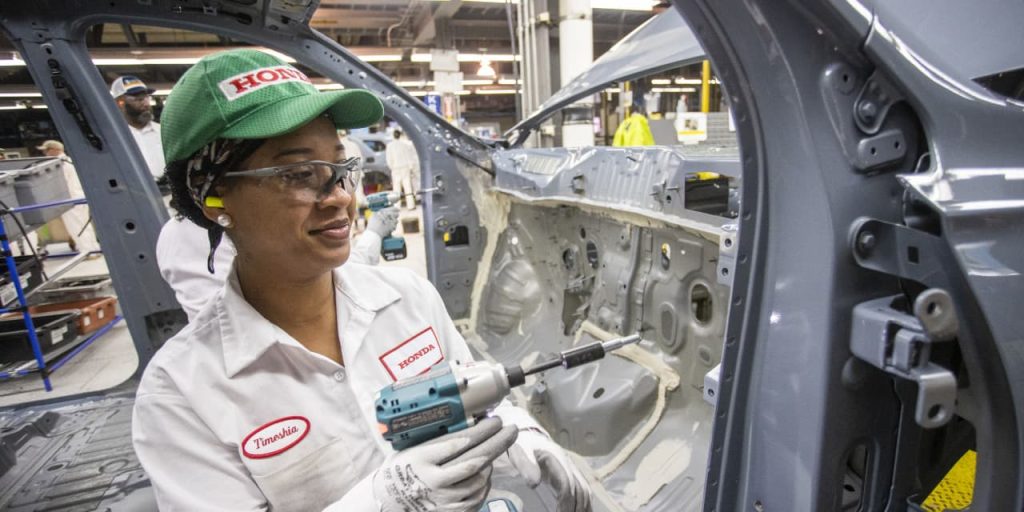There is a good reason for workers at Honda’s Alabama Auto Plant to have a smile on their faces.
Courtesy of Honda
After winning a record contract from the Detroit Three auto makers, the United Auto Workers says it will target nonunion shops to expand membership in coming years. The nonunion operators see the UAW coming, so it isn’t going to be easy.
Friday,
Honda Motor
(ticker: HMC) announced an 11% wage bump for hourly workers starting in January. That is the same wage increase UAW workers at
Ford Motor
(F),
Stellantis
(STLA), and
General Motors
(GM) will get via the deals the union recently negotiated.
The UAW increases happen when members ratify the contracts. That will be a few weeks before Honda workers’ wages go up.
Along with higher wages, Honda is cutting the time required to reach top wage rates. That is also a gain won by the UAW at the Detroit Three.
“Honda has been committed to maintaining an excellent employment experience for our production associates since we began manufacturing in America in 1979,” said the company in an emailed statement. “Over the past two years, we have made a number of changes to our benefits packages, which will continue with changes to compensation for production associates at our U.S. facilities.”
Those gains will make it tougher for UAW President Shawn Fain to expand his membership base. “One of our biggest goals coming out of this historic contract victory is to organize like we’ve never organized before,” said Fain at an event shortly after the union came to a tentative agreement with Ford in late October.
“When we return to the bargaining table in 2028, it won’t just be with the Big Three, but with the Big Five or Big Six.”
It is an interesting situation for auto companies, the union, and workers. Nonunion auto workers benefit from the UAW negotiating for other employees. Auto makers can set wages and benefits just below what UAW employees get, keeping workers happy and reducing the need, and desire, for union representation.
That gives nonunion auto makers a small competitive advantage, while their workers get pay that is close to union levels without paying dues or going on strike.
It is the kind of “free-rider” problem economists sometimes talk about—one group paying more than their fair share of costs for something that is of wider benefit. Another example, cited by the Corporate Finance Institute, is a lighthouse that benefits all sailors, including those that don’t pay for its upkeep.
It’s a nagging problem for the Detroit Three and their investors.
Honda’s U.S.-listed American depositary receipts were up almost 2% on Friday afternoon. The
S&P 500
and
Dow Jones Industrial Average
gained 1.1% and 0.8%, respectively.
Write to Al Root at [email protected]
Read the full article here




